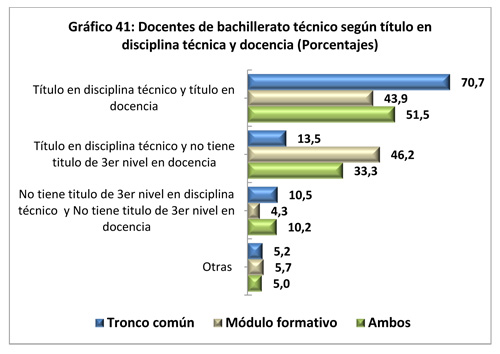At the beginning of 2013, the Ecuadorian Ministry of Education asked VVOB to offer support to tackle the issue of discrepancy between between the supply of technical education programmes and the demand for qualified graduates on the labour market. To do this, we needed to know in detail how many students there are in the 36 different careers that are offered throughout the country, and what kind of skilled labour is exactly needed in the labour market. We already encountered difficulties with the first step: at the Ministry of Education, data on technical education was at best unreliable or completely lacking.
We decided that a significant part of our new Multi-Year Programme on technical education would be on teacher development and that the implementation phase would focus on one particular part of the country, Zona 4. This made it necessary to conduct a complete census in Zona 4 - with a population of 1.766.377 and 286 technical schools - about various aspects of technical education. We contracted a company specialised in data collection. It turned out to be an extremely interesting collaboration, now to be repeated in all the other zones by the Ministry itself.
The areas of investigation
We collected quantitative data in all technical schools of Zona 4 about the following aspects:
- General characteristics of the technical schools in terms of size, population, type, moment of teaching etc.
- The type of programmes offered by the schools
- The situation of practical training for students in companies
- The amount of entrepreneurial projects of the schools (an obligation by law)
- The situation of directors and vice-directors
- The situation of teachers
- The availability and quality of the infrastructure
Most important findings
- Of all the 286 technical schools that supposedly existed in the area in 2013, 42 no longer functioned as a technical school or had been closed.
- 60.7% of the technical schools are public, 32.8% are private.
- 67.4% of all technical students can be found in 4 careers: Accountancy, ICT, Accountancy and Administration, and Agricultural Production. Less than 5% of the students are in careers in Tourism and less than 10% of all students follow an industrial career. This in a region with a beautiful coastline full of tourist attractions, a big port and one of the biggest oil refineries of Ecuador.
- In 38.1% of the technical schools, there is a problem of finding enough places in companies to do practical training. And strangely, 25% of all companies offering traineeships are car mechanic workshops while only 7 schools offer the career in car mechanics.


- In total, 1871 youngsters (5% of the population of technical education ) abandoned their studies in 2012-2013, 914 of them already in the first year. 52% of drop-outs are boys.
- 57.4% of technical teachers in technical education is having a temporary contract, in contrast to 48.1% that teach the general subjects.
- 54.3% of teachers in technical subjects have a diploma of higher education in a technical discipline but do not have a higher education pedagogical diploma. This even becomes 63.4% if we only look at teachers between the age of 19 to 35. Male teachers more often lack a diploma than female teachers.
- 8.3% of all teachers in technical education have no diploma of higher education (not a technical one, nor a pedagogical one).

Next steps in the programme
- To analyse these data thoroughly and to integrate the aspects of technical information within the existing databases of the Ministry so that from now on, there will be data collecting on technical education on a continuous basis in Ecuador.
- To analyse existing information on labour market demand in Zona 4, and to design a methodology to match supply and demand so that a solid input can be given to reorganise the supply of technical education (first in Zona 4, afterwards in the rest of the country).
- Regarding the situation of teachers and directors, these data will be used to further investigate the specific professional development needs of teachers in technical education, which in turn will form the basis of the design of a number of courses and practical training opportunities.
This baseline study forms the starting point for our new Multi-Year Programme on Technical Education in Ecuador.
A promising start!




